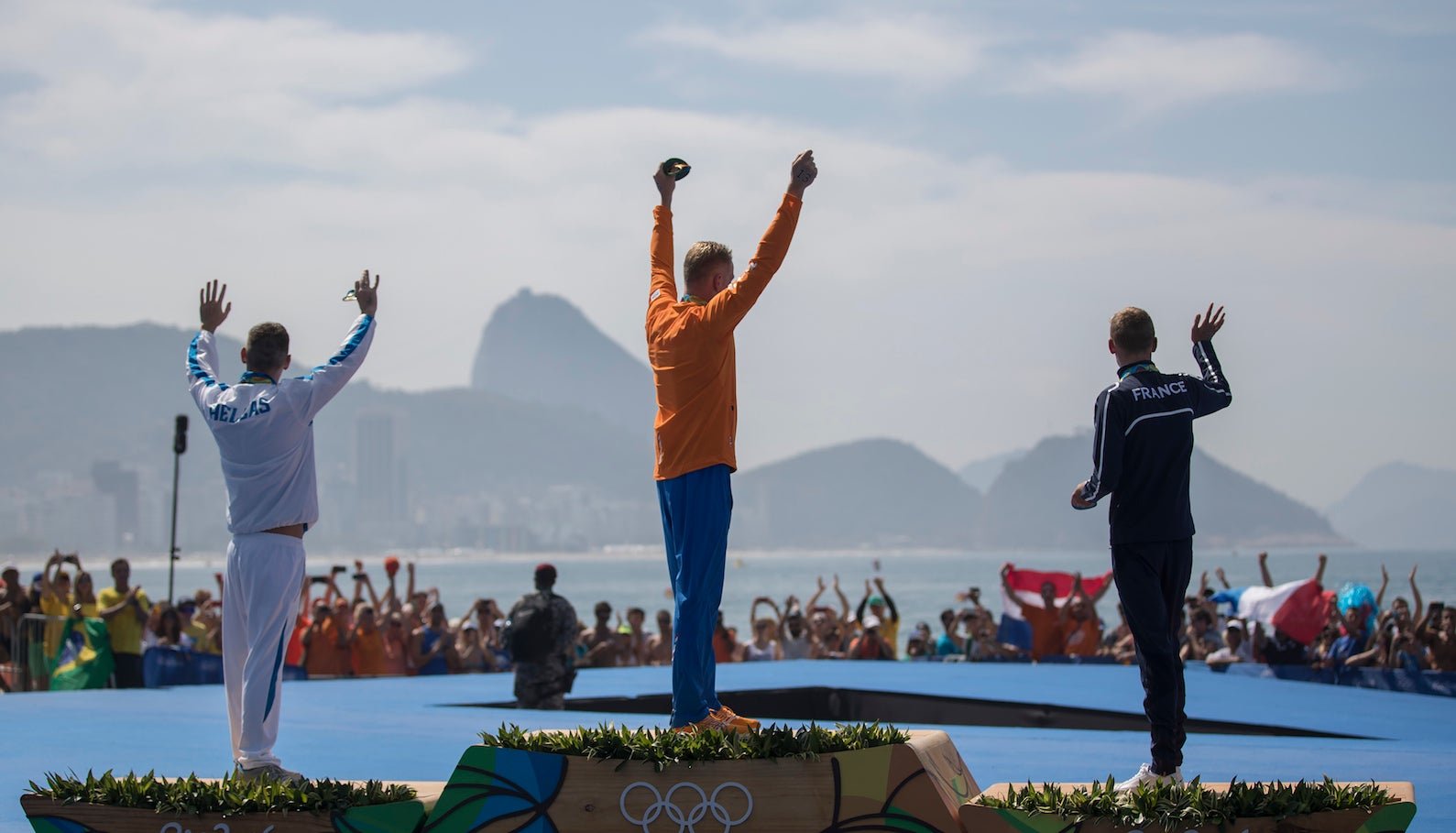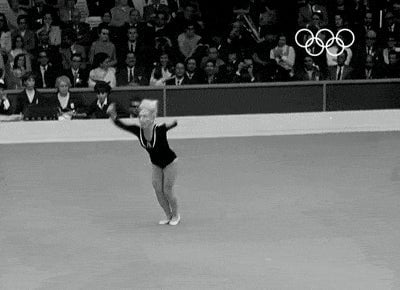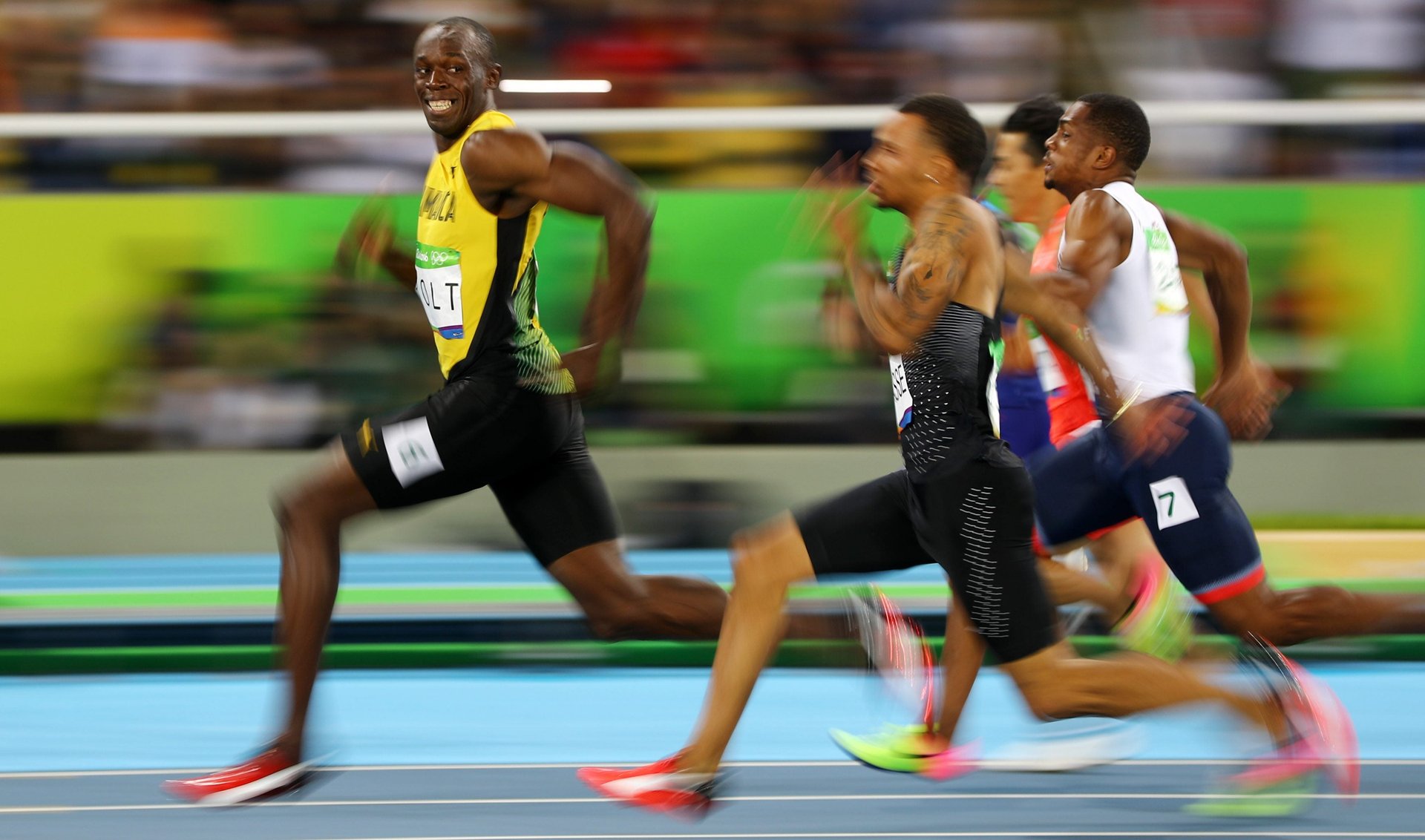Shards of Quartz: Ten of our best stories from the 2016 Rio Olympics
We here at Quartz are huge fans of sports. And amid the maelstrom of Olympic coverage, we’ve striven to find unusual, intelligent, and enlightening angles on the Rio Games that, we think, will make you understand aspects of the world’s greatest sporting contest in a new way.


We here at Quartz are huge fans of sports. And amid the maelstrom of Olympic coverage, we’ve striven to find unusual, intelligent, and enlightening angles on the Rio Games that, we think, will make you understand aspects of the world’s greatest sporting contest in a new way.
Here’s a list of 10 of our favorites. There’s no podium here—no gold medal for best story. Consider this like the swimming, a 10-way tie for first place. (You can read about why that happens, by the way, here.)
Is Simone Biles really unbeatable? Breaking down the physics behind her gymnastics

To explain the incredible contortions of US gymnast Simone Biles, Michael Tabb suggested you get in a desk chair and start spinning. “Now curl yourself into a ball. Do you rotate faster? (You should).” We also learn about ”passive dynamics” and Euler’s equations for the motion of a rigid body, which show the (complex) relationship between how Biles positions her body and holds it steady as she flips, twists, and turns. Finally, Tabb explains how understanding this might even help us build better robots.
The Olympics of sport are also the Olympics of sex
With a record number of condoms supplied at the Rio Olympics—450,000, with 175,000 sachets of lubricant—Mun Keat Looi looks into the history of the long-held belief that somehow sex and professional sports shouldn’t mix, and asks the tough questions: Does sport make you randier? And do elite athletes suffer any drop in performance if they partake in a bedroom workout?
The true financial burden of becoming an Olympic gold medalist
Most athletes who do make it to the Olympics receive very little funding, and most don’t make a lot of money off their sport outside of the Games, either. Fifty percent of track athletes who rank in the top 10 in the US in their event earn less than $15,000 annually from the sport. Edward Etzel, an ex-Olympic shooter, speaks from personal experience of the difficulties that the best of the best have to go through to achieve their dreams.
What is the point of the Olympics? A philosophical answer
What is the point of watching a group of people get together to compete over running quickly or lifting big weights? Olivia Goldhill turns to the classics to explain why we care so much. Aristotle believed “that play or sport is the closest thing most human beings come to contemplation, to the highest of human activities,” one professor of political philosophy notes.
The Rio Olympics finally represents the whole world, including millions with no country

The Olympics is about nations (and many countries that aren’t nations) competing against each other. What happens when you have no country anymore? This year, the Olympics had its first ever refugee team, representing not a country but the 65 million people displaced by war and persecution. Annalisa Merelli writes that “we should remember what they represent: that refugees are not a monolithic group, nor are they helpless.”
Why Brazilians can’t help booing anything and everyone at the Olympics
For many Olympians, one of the lasting memories of the Rio Games will be the incessant booing that reduced some of the athletes to anger and tears. Matt Moffett looks into why Brazilians love to make noise at every opportunity and finds that it goes beyond soccer culture and political turmoil. “The issue here is that Brazil is basically a very closed and insular country,” as one local said.
When you know you’re the absolute greatest, in one photo

Highlighting just one photo for the Olympics is hard, but Usain Bolt made it easier by grinning broadly as he eased to victory in the men’s 100m sprint—winning an unprecedented third straight gold medal. Johnny Simon demonstrates the power of a single photo by taking us through an iconic moment from sports history from multiple angles.
It isn’t just Olympians who have evolved. It’s sports
In this video, Nushmia Khan makes a compelling argument that not only are Olympians improving in their game, but the sports themselves are changing too, with more specialized training and equipment, higher pay for the best athletes, and the gradual selection of ever more specific body types for each sport, such as the 4’8″ (1.42m) Simone Biles. Speaking of which, you can read more about the incredible shrinking Olympic gymnast here.
Meet the Saudi Arabian women fighting sexism through secret running clubs
All four women representing Saudi Arabia this year were either born in the US or have spent a large portion of their training time abroad. Back home, in a country where women can’t drive, the Saudi government has long limited female access to athletics and sports. If you’re not sure that sports mean anything, Julia Case-Levine explains how every step of a run can be a political act for a brave group of women.
The Olympics allow democracies to behave like dictatorships—if only for a short time
As the Games end, it’s worth asking once more: Are they worth it? One longtime critic says—rather tongue in cheek—that “the best places to hold the Olympics are in totalitarian regimes. They can make sure everything goes absolutely smoothly.” Aamna Mohdin notes the IOC’s anti-democratic tendencies and traces the history of corporate sponsorship at the Olympics back to the the Los Angeles Games in 1984, the only Olympic event ever to turn a profit.